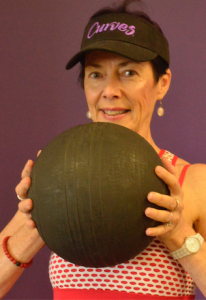
GLORIA Jackson, 70, and Kim Parkinson, 69, are two Canberrans who, according to a new study, are reducing their risk of dementia by exercising.
The study, which was carried out by ANU, found that people in their 60s and early 70s could lower their risk of dementia by going to the gym to retain muscle mass.

Kambah’s Gloria, who has been attending Curves in Weston Creek for about three years, says reducing the risk of dementia is one of the main reasons she stays motivated.
“I first joined up because I’d become sick and lost a lot of weight and muscle,” she says.
But, after completing a three-month course online about dementia, Gloria says that’s what keeps her coming back.
“Now I come three times a week to keep my muscles strong and protect my bones.”
For Hackett’s Kim, decreasing the risk of dementia isn’t a key motivator but he says it’s an excellent benefit.
Kim, a former Aussie Rules player, has been going to the gym at ANU since 1976.
“When you’re at my age, you have to keep active because if you stop moving things will start to seize up,” he says.
Kim, like Gloria, goes three times a week and incorporates exercises such as free weights, squats and the bench press in his routines.

But the lead researcher of the study, Dr Marnie Shaw from the ANU Research School of Engineering, says benefits can come from exercise outside of the gym, too.
She says it’s important for people to generally stay active and retain muscle mass, no matter what it’s doing, and advises people to chat with a GP about what that might be.
The study, which observed about 400 people aged in their 60s and early 70s from Canberra at several different stages over time, shows the relationship between body mass index (BMI) and brain shrinkage.
Dr Shaw says people with brain shrinkage are more likely to develop dementia.
“People who are losing weight showed more brain ageing than people that showed stable weight,” she says.
“Because of that we’re making the conclusion that, that’s probably related to a loss of muscle mass.”
Dr Shaw says weight loss during people’s later years is common and often due to losing muscle mass.
“Preliminary results from our research indicate that it’s important for people in later years to go to the gym to maintain a healthy weight and not lose their muscles,” she says.
“But an active lifestyle offers real opportunities for reducing dementia risk,” she says.
Other main risk factors for dementia include midlife obesity, physical inactivity, smoking, hypertension and depression.
ANU collaborated with UNSW on the research, which is published in the “International Journal of Obesity”.
Who can be trusted?
In a world of spin and confusion, there’s never been a more important time to support independent journalism in Canberra.
If you trust our work online and want to enforce the power of independent voices, I invite you to make a small contribution.
Every dollar of support is invested back into our journalism to help keep citynews.com.au strong and free.
Thank you,
Ian Meikle, editor





Leave a Reply